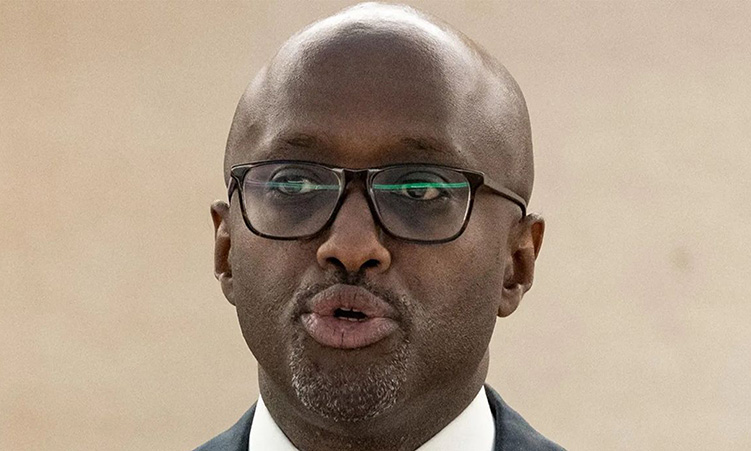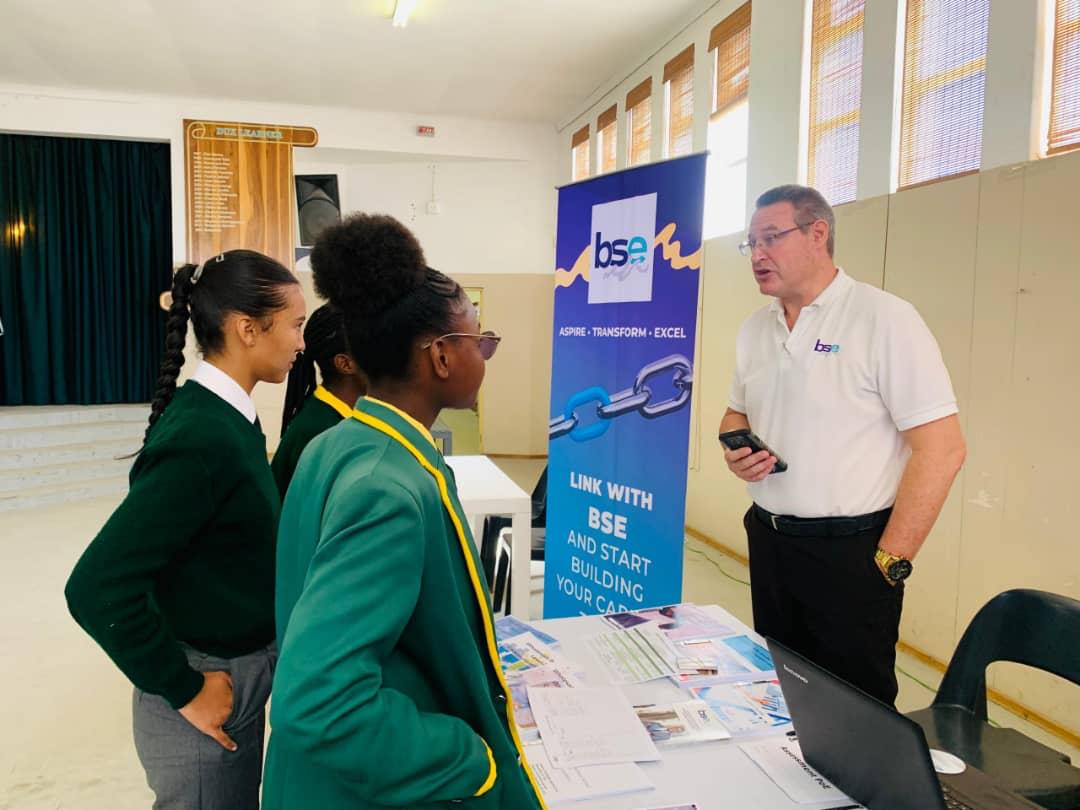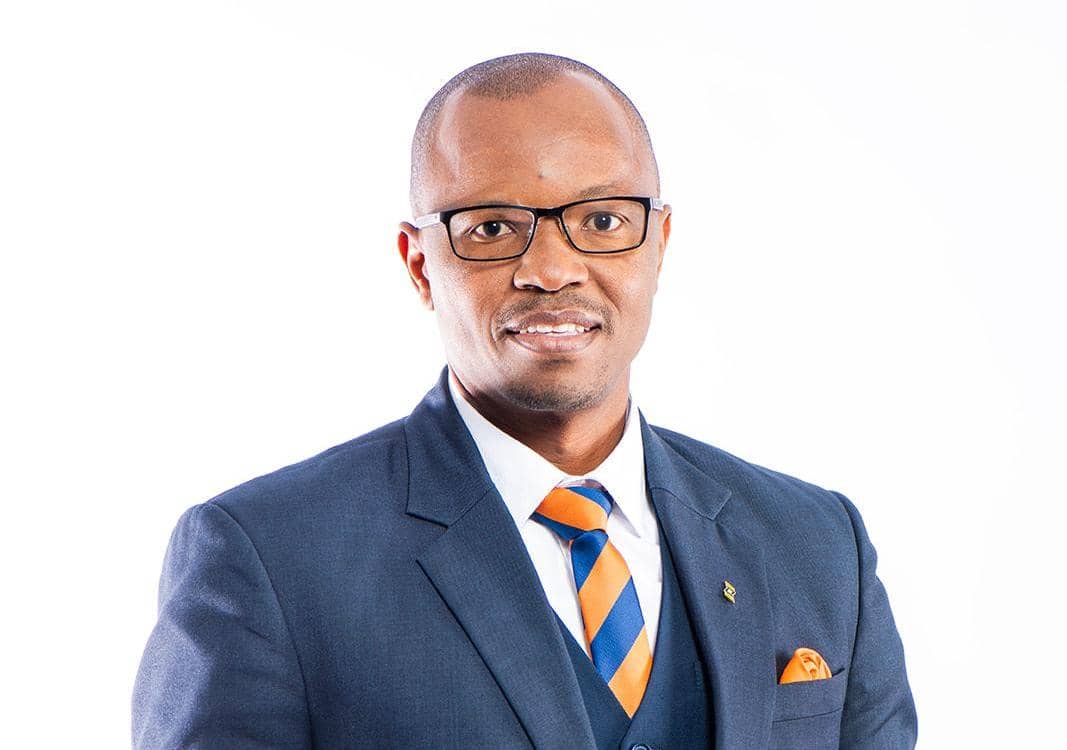THE re-arrest of 13 Caprivi high treason accused after the High Court ordered their discharge from the treason case, was both permissible and necessary to avoid the “serious consequences” of the 13 not standing trial.
This has been stated under oath by a senior Police officer, Deputy Commissioner Gerson //Naweseb, in an affidavit filed with the High Court in Windhoek. //Naweseb, who was involved in the re-arrest, is responsible for the Police contingent stationed at Grootfontein during the high treason trial at the High Court there.He set out the grounds for the re-arrest in an affidavit that forms the backbone of Government’s case in the dispute over the re-arrest of the group.The 13 were officially “released” – on paper only – but in effect remained in Police custody after Judge Elton Hoff had ordered, on February 23, that they should be released because the court did not have jurisdiction over them.That ruling was based on his finding that the 13 had been brought before court irregularly because legally correct procedures had not been followed when they were brought to Namibia from Zambia and Botswana to be arrested and prosecuted.//Naweseb also used his affidavit to briefly set out – in more detail than the prosecution has done until now – more exact allegations against each of the 13 in respect of their claimed involvement in the Caprivi secession plot.In a replying affidavit, Moses Limbo Mushwena offered only a brief, blanket denial in response to the Deputy Commissioner’s claims about the group’s involvement in the alleged secessionist conspiracy.Mushwena, who is one of the 13, gave the affidavit on which the 13 based their court bid to be released.DEFENDED//Naweseb denied that it had been unlawful to arrest the group anew to face charges of high treason, murder, and attempted murder, among others.Since the 13 were not acquitted on the merits of the case, they could be arrested and charged with the same crimes, he submitted.This claim has been attacked by Theo Frank, SC, who was set to argue the case for the release of the 13 in an urgent application that was postponed in the High Court in Windhoek on Friday.Instead it will be taken directly to the Supreme Court.In a written summary of arguments, Frank remarked that it was absurd to allege that all that Judge Hoff’s judgement implied was that once the 13 had left the dock they could be re-arrested.”If this is the case, no plea to jurisdiction based on how the presence of an accused before Court was procured, would be worthwhile,” Frank stated.Jeremy Gauntlett, the Cape Town-based senior counsel who was set to represent Government in Friday’s postponed case disagreed.He said it was legally possible and quite correct to have re-arrested the 13.”A bad arrest gives no immunity from re-arrest,” Gauntlett stated in the summary of his arguments filed with the High Court.”The simple fact is that compliance with the first order meant that the applicants (the 13) were thereafter within Namibian territory, where they could be lawfully arrested like any other person,” he added.Judge Hoff’s February 23 order did not give “some kind of perpetual immunity” from prosecution, he added.In his affidavit, //Naweseb also claimed that the effects of Judge Hoff’s judgement had been that the 13 were no longer before the High Court at Grootfontein for trial and were released from custody in respect of the indictment in the high treason case in that court.This did not preclude the State from arresting the 13 anew and commencing fresh criminal proceedings, he contended.CHARGES REVEALED”I accordingly deny that the applicants were arrested on ‘spurious’ charges.The State had good cause to arrest the applicants and charge them with these extremely serious offences relating to the involvement of each in the attempt in 1999 to overthrow a lawful government,” he stated.The authorities had acted as they have done “because of the serious consequences of the applicants (the 13 suspects) not standing trial, and on the basis that the ruling by Judge Hoff is, with respect, wrong (…). and in any event (…) not prohibitive of the subsequent arrest,” according to //Naweseb.Among the allegations against the 13 that he set out, were claims that: * John Samboma was the commander of the secessionist Caprivi Liberation Army (CLA), bought firearms and ammunition from the Angolan rebel movement Unita on several occasions, travelled to Angola to establish a rebel army base in Unita-controlled territory, established a rebel base in Zambia, and on August 2 1999 was the commander of a group of CLA members that attacked the Mpacha Military Base at Katima Mulilo; * Thaddeus Ndala was a co-founder of a forerunner of the CLA, named Kopanoya Tou and later renamed Revival Liberation Movement of Caprivi, travelled to Angola in August 1993 to meet Unita to seek assistance, attended meetings with alleged separatist leader Mishake Muyongo at which the progress of the secessionist idea was discussed, and was appointed a leader of the rebel army; * Oscar Nyambe Puteho and Charles Mushakwa accompanied Samboma to Angola to acquire weapons, and had received military training in Zambia; * Richard Libano Misuha went into Angola to receive firearms training from Unita, and on August 2 1999 was the commander of a CLA group that attacked the Katounyana Special Field Force Base near Katima Mulilo, killing one person; * Oscar Muyuka Puteho was the co-founder of a rebel base at Makanga Forest in the Caprivi Region, went into Angola to receive military training from Unita, was a platoon commander at the Lyiubu-Lyiubu rebel base, and was part of a CLA group that attacked the Katima Mulilo town centre on August 2 1999.The High Court at Grootfontein did not absolve them and the other members of the group of 13 from future prosecution for the serious crimes they are alleged to have committed, //Naweseb claimed.//Naweseb, who was involved in the re-arrest, is responsible for the Police contingent stationed at Grootfontein during the high treason trial at the High Court there.He set out the grounds for the re-arrest in an affidavit that forms the backbone of Government’s case in the dispute over the re-arrest of the group.The 13 were officially “released” – on paper only – but in effect remained in Police custody after Judge Elton Hoff had ordered, on February 23, that they should be released because the court did not have jurisdiction over them.That ruling was based on his finding that the 13 had been brought before court irregularly because legally correct procedures had not been followed when they were brought to Namibia from Zambia and Botswana to be arrested and prosecuted.//Naweseb also used his affidavit to briefly set out – in more detail than the prosecution has done until now – more exact allegations against each of the 13 in respect of their claimed involvement in the Caprivi secession plot.In a replying affidavit, Moses Limbo Mushwena offered only a brief, blanket denial in response to the Deputy Commissioner’s claims about the group’s involvement in the alleged secessionist conspiracy.Mushwena, who is one of the 13, gave the affidavit on which the 13 based their court bid to be released.DEFENDED//Naweseb denied that it had been unlawful to arrest the group anew to face charges of high treason, murder, and attempted murder, among others.Since the 13 were not acquitted on the merits of the case, they could be arrested and charged with the same crimes, he submitted.This claim has been attacked by Theo Frank, SC, who was set to argue the case for the release of the 13 in an urgent application that was postponed in the High Court in Windhoek on Friday.Instead it will be taken directly to the Supreme Court.In a written summary of arguments, Frank remarked that it was absurd to allege that all that Judge Hoff’s judgement implied was that once the 13 had left the dock they could be re-arrested.”If this is the case, no plea to jurisdiction based on how the presence of an accused before Court was procured, would be worthwhile,” Frank stated.Jeremy Gauntlett, the Cape Town-based senior counsel who was set to rep
resent Government in Friday’s postponed case disagreed.He said it was legally possible and quite correct to have re-arrested the 13.”A bad arrest gives no immunity from re-arrest,” Gauntlett stated in the summary of his arguments filed with the High Court.”The simple fact is that compliance with the first order meant that the applicants (the 13) were thereafter within Namibian territory, where they could be lawfully arrested like any other person,” he added.Judge Hoff’s February 23 order did not give “some kind of perpetual immunity” from prosecution, he added.In his affidavit, //Naweseb also claimed that the effects of Judge Hoff’s judgement had been that the 13 were no longer before the High Court at Grootfontein for trial and were released from custody in respect of the indictment in the high treason case in that court.This did not preclude the State from arresting the 13 anew and commencing fresh criminal proceedings, he contended.CHARGES REVEALED”I accordingly deny that the applicants were arrested on ‘spurious’ charges.The State had good cause to arrest the applicants and charge them with these extremely serious offences relating to the involvement of each in the attempt in 1999 to overthrow a lawful government,” he stated.The authorities had acted as they have done “because of the serious consequences of the applicants (the 13 suspects) not standing trial, and on the basis that the ruling by Judge Hoff is, with respect, wrong (…). and in any event (…) not prohibitive of the subsequent arrest,” according to //Naweseb.Among the allegations against the 13 that he set out, were claims that: * John Samboma was the commander of the secessionist Caprivi Liberation Army (CLA), bought firearms and ammunition from the Angolan rebel movement Unita on several occasions, travelled to Angola to establish a rebel army base in Unita-controlled territory, established a rebel base in Zambia, and on August 2 1999 was the commander of a group of CLA members that attacked the Mpacha Military Base at Katima Mulilo; * Thaddeus Ndala was a co-founder of a forerunner of the CLA, named Kopanoya Tou and later renamed Revival Liberation Movement of Caprivi, travelled to Angola in August 1993 to meet Unita to seek assistance, attended meetings with alleged separatist leader Mishake Muyongo at which the progress of the secessionist idea was discussed, and was appointed a leader of the rebel army; * Oscar Nyambe Puteho and Charles Mushakwa accompanied Samboma to Angola to acquire weapons, and had received military training in Zambia; * Richard Libano Misuha went into Angola to receive firearms training from Unita, and on August 2 1999 was the commander of a CLA group that attacked the Katounyana Special Field Force Base near Katima Mulilo, killing one person; * Oscar Muyuka Puteho was the co-founder of a rebel base at Makanga Forest in the Caprivi Region, went into Angola to receive military training from Unita, was a platoon commander at the Lyiubu-Lyiubu rebel base, and was part of a CLA group that attacked the Katima Mulilo town centre on August 2 1999.The High Court at Grootfontein did not absolve them and the other members of the group of 13 from future prosecution for the serious crimes they are alleged to have committed, //Naweseb claimed.
Stay informed with The Namibian – your source for credible journalism. Get in-depth reporting and opinions for
only N$85 a month. Invest in journalism, invest in democracy –
Subscribe Now!










